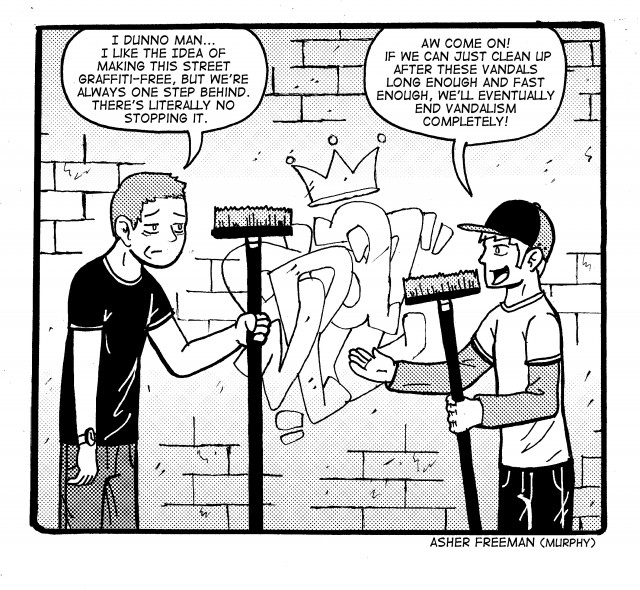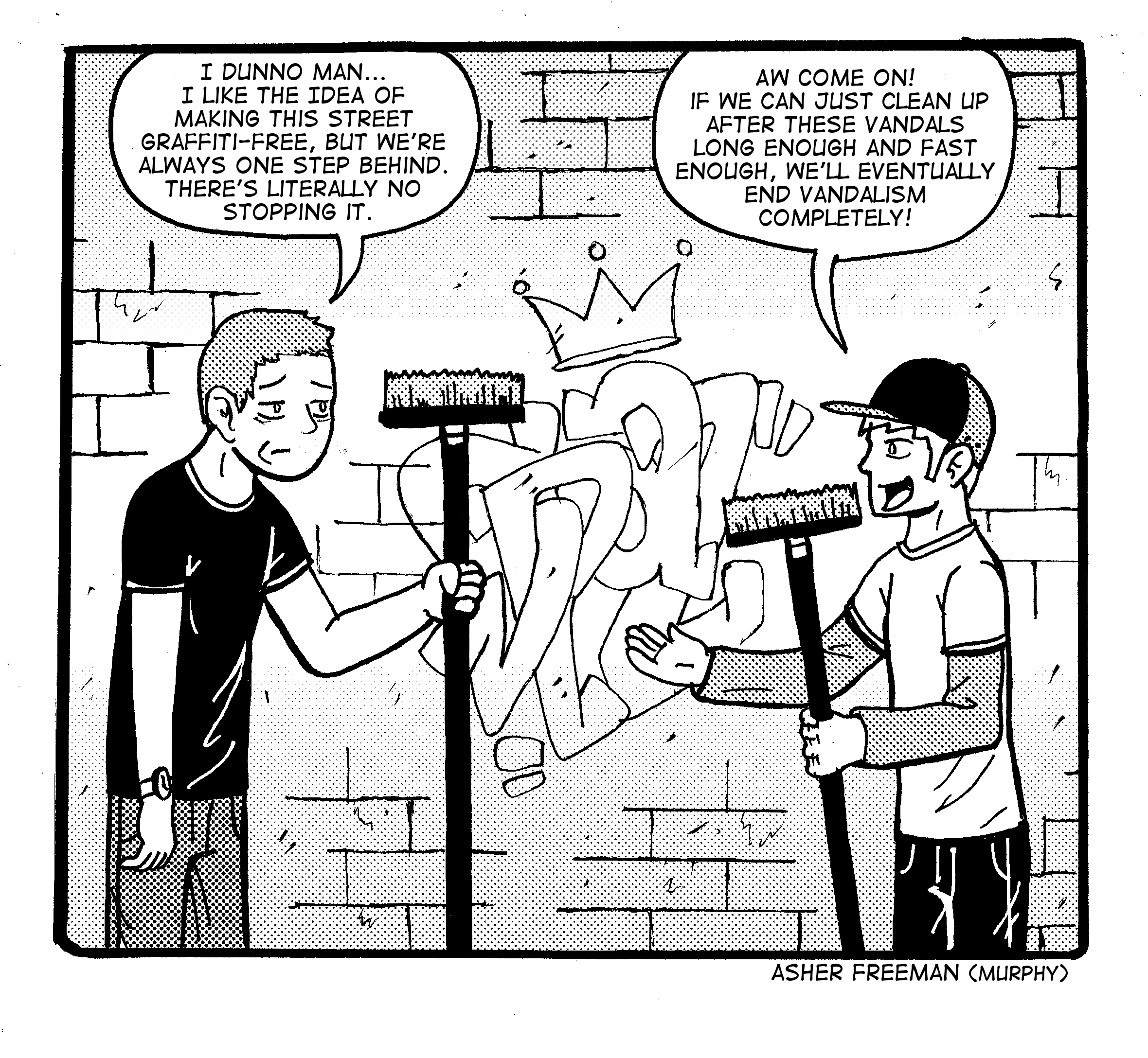 Trying to stop Internet piracy is like playing a never-ending game of whack-a-mole.
Trying to stop Internet piracy is like playing a never-ending game of whack-a-mole.
One site may shut down, but in no time, it will be replaced — and the sites and those who frequent them just keep coming.
Music, videos, e-books, software, photos and comics are downloaded illegally several million times a day, according to torrentfreak.com, a site that reports on copyright and piracy news.
Since the dawn of the Napster days, the government has constantly said that it will shut down piracy operations, but the most the government manages to do is pick one person and make an example out of them.
Aside from the government taking on The Pirate Bay Company, a major website that facilitates the peer-to-peer file sharing of torrent files and magnet links, most of the major crackdowns have targeted small-scale pirates, who are most likely 14-year-old techie boys in their rooms downloading the latest music and movies to share with their friends.
Internet service providers and the entertainment industry threw their latest punch at pirates on Feb. 25 when they called for the “Copyright Alert System.”
It is currently unknown what type of punishment each service provider will use, but under Verizon’s proposed plan—which was ironically leaked on the internet last month—subscribers who are found to be illegally sharing content will be sent six electronic warnings, as reported by a monitoring service working on behalf of copyright owners, and if they fail to comply, they could temporarily lose Web access or have their Internet speed slowed to a crawl for two to three days.
While things such as the “Copyright Alert System” could possibly deter small-scale operations or individuals, it is not likely to do anything to large operations.
Because it is not possible to slow Internet access indefinitely and many pirates operate from multiple ISP addresses based overseas, all the government and these service providers are doing is pushing them to find more creative ways to obtain and share their content.
There are too many holes in this plan. Where there’s a will, there’s a way. And time has proved again and again that there is a will to download free illegal content across all platforms.
Piracy, though, doesn’t have to be a bad thing.
Take the HBO show “Game of Thrones,” for instance. It was named the most pirated show on television in 2012.
Last week, its director spoke in favor of piracy, saying piracy is partially responsible for the “cultural buzz” that the show needs to survive.
The show is clearly not hurting because of the piracy; it is only fueling the purchase of related merchandise. Thanks to those illegal reproductions of its episodes, it reaches an audience of more than those who subscribe to the HBO channel.
While sharing copyrighted content is definitely not ideal or legal, you would be hard pressed to find someone who hasn’t taken their fair share of songs from Limewire.
Online media sharing is not going to go away any time soon.
While the government and the entertainment industry have tried to keep up, the people they should really be trying to stop will always be a step ahead. It’s useless and ineffective.
Instead, entertainers should concentrate on pushing show or music related merchandise. It’s time the government, service providers and entertainers stopped waging a war against an action that is a fact of life.
Piracy is here to stay — but service providers and entertainers won’t be unless they keep up with the times and concentrate on merchandising.
Remember, physical merchandise is much harder to steal.






